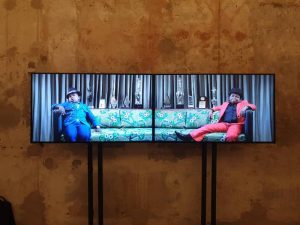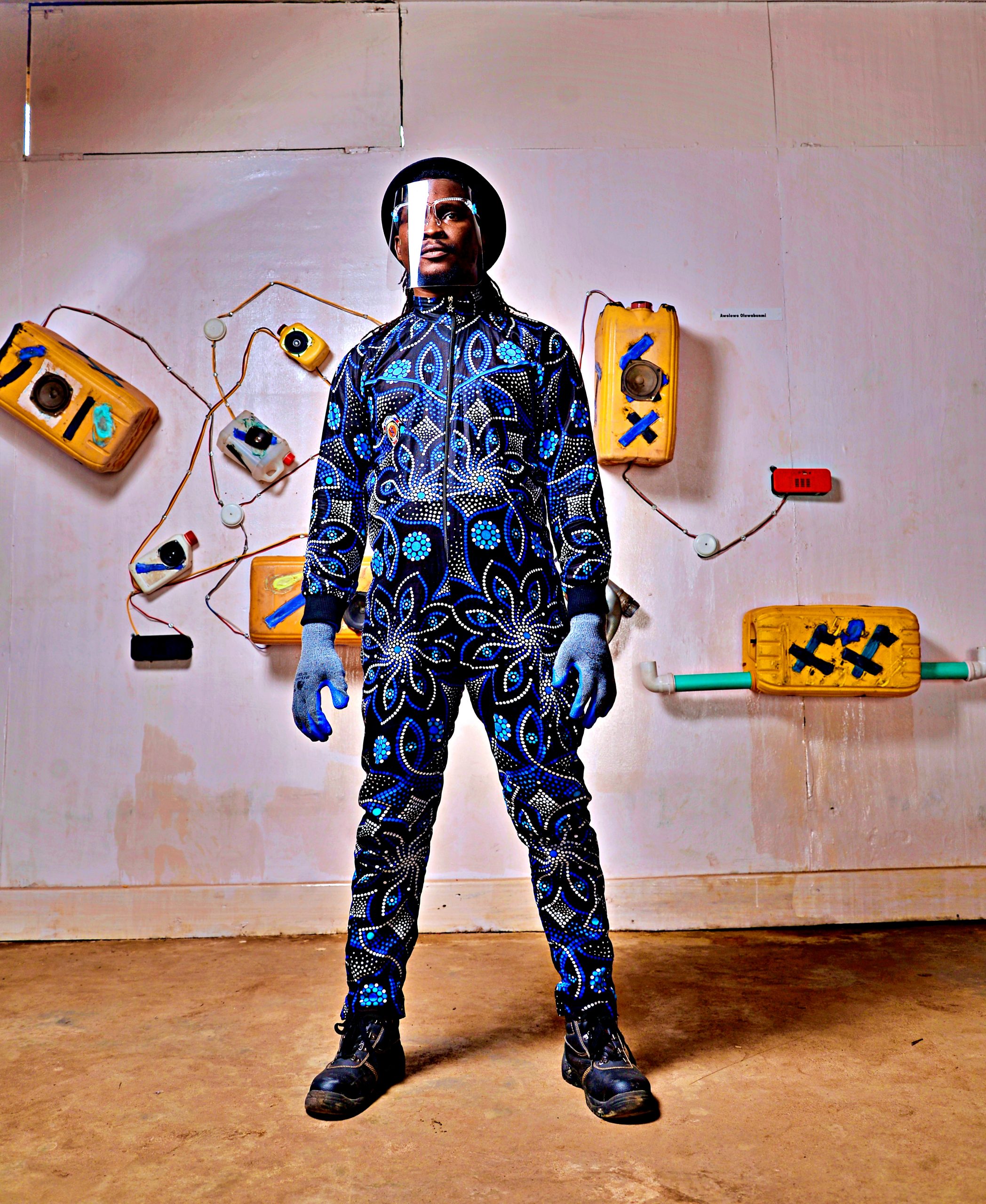Tutùọlá Institute makes history as Aderemi Adegbite, four others exhibit in Berlin
Artist and culture promoter, Aderemi Adegbite, has opened an exhibition in Berlin, Germany. The project is holding on the platform of Lagos-based Tutùọlá Institute, which he recently established. The institute is one that represents the cultural image and identity of the Yoruba people in the South-West Nigeria and is the first Nigerian Cultural Institute of Yoruba Culture at Sophiensaele in Berlin.
The other exhibitors are are Candice Breitz (South Africa/Germany), Mario Pfeifer (Germany), Aline Motta (Brazil), Rehema Chachage (Tanzania) and Ahmed Olayode (Nigeria).
Anuja Ghosalkar reflects in a performance on the complicated ethics and harsh economies of working as an artist in India. Rehema Chachage shreds a heap of rejected funding applications and manually transforms them into something radically new. Abhishek Thapar takes the audience on an intimate and speculative journey through their bank accounts, minds and hearts. Azade Shamiri’s lecture performance shows representations of the West in Iranian plays and poses questions of the past to the present. Nora Amin sheds light on the history of so called ‘belly dance’ in her solo and wrestles the dance from the eroticized and voyeuristic gaze to an empowered expression of the dancer.
The project is premised on the belief that cultural producers around the globe need funding for their cultural projects: both small/large-scale productions. It notes that getting project funded is a serious task that needs rigorous paper work no mater on the side of the divides that you belong: Global North or Global South.
“As a Cultural Producer, who is on the other side of the divides (Global South), it is clear to me that most cultural productions in the Global South depend largely on funding from the Global North, that are based on funding structures already in existence for several years or even decades. They are structures which place the funders above those seeking funding, structures which give the funders an upper-hand over the funded cultural organizations and projects, notwithstanding the qualities of those projects or the organization’s level of experience. In short, it is an unequal scale, one that tilts more to the advantage of the funders than the funded. Indeed, this funding dichotomy operates on “power play,” which flourishes on restrictions and manipulations of artistic inventions and processes,” the curator explains.

The exhibition enjoys the support of White Money by Flinn Works which, the organisers note, flows from the arts funding bodies in Europe.
They add, “It funds artists in the Global South or commissions work from artists in the Global South to be presented in the Global North. Often this white funding is an economic incentive to create or to perform work catered to the taste of the funders and curators, to present orientalist or exotic images of ‘other’ bodies and to re-shape or simplify complex content for a white audience. White money therefore shapes or reinforces inequalities and re-iterates racist and neo-colonial structures.



